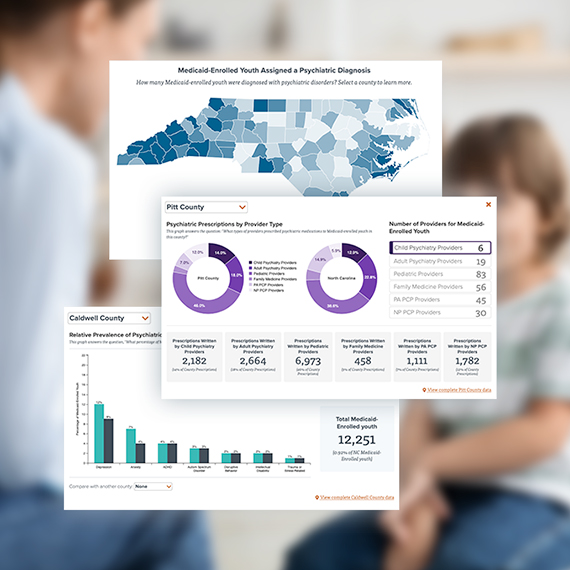NC-PAL promotes behavioral health for North Carolina children, youth, and families.
We provide mental health consultation and education to North Carolina clinical and social service providers—building their mental health knowledge and capacity.

Are you a provider looking for a pediatric or perinatal mental health consultation?
Call our Pediatric Access Line at (919) 681-2909
Available Monday–Friday, 8 a.m. to 5 p.m.
This number is for consultations only. It is not an emergency line.
How does it work?
A provider has a question about pediatric or perinatal mental health.
They call the Psychiatry Access Line: (919) 681-2909.
Our behavioral health experts respond to questions about resources, diagnosis and treatment.
Enrollment is quick and easy.
Why not save a step when you call and enroll with NC-PAL now?
It takes just a minute or two. Plus, you get access to free continuing education training.
Build Your Knowledge with NC-PAL Continuing Education
NC-PAL offers Continuing Education programs that expand clinicians' knowledge of pediatric behavioral health topics. Whether you're looking for a multi-day training program or a seminar over lunch, our educational offerings let you earn CME credits while growing your knowledge of mental health care.
REACH PPP Training
NC-PAL partners with REACH PPP—a nationally recognized mental health training program—to provide training to primary care providers in North Carolina at no cost to participants!
Participants learn not only to diagnose and treat patients, but also to refer families to appropriate supports such as cognitive behavioral therapy. You’ll leave the training with tools you can use immediately.
Our next training session is:
Lunch & Learn
Join us to broaden your knowledge of pediatric mental health and earn CME credits—on your lunch break!
In each session of our Lunch & Learn series, an expert speaker will share diagnostic strategies, treatment approaches, and practical tips for addressing pediatric behavioral health concerns. There's no charge for these webinars, so register today!
NC Youth Mental Health Care Dashboard
Our primary goal is to improve behavioral health care for youth and families across North Carolina. We built a series of maps and tables to show the current provision of health care in our state.
Explore the dashboard for insights into diagnoses, treatments, and prescriptions North Carolina youth receive and the providers who treat them.

Access Provider Resources
If you need a hand determining your patient’s behavioral health concerns and severity, we’re continuously working to expand the available resources. From instructional videos to screening forms, we’re working to support North Carolina’s clinical and social service providers. Don’t forget to subscribe to our newsletter for the latest updates.
![]()
Resources for Families
While our primary work is to enable providers to support mental health, we have collected some resources to help North Carolina families find information and connect with behavioral health care providers.
Programs: Extending Beyond the Clinical
We’re developing new programming to improve North Carolina’s overall mental health via collaborative care, behavioral health consultation in early childhood development settings, and improved support for intellectual and developmental disabilities. Our programs extend beyond clinical settings to support the schools and social services that are often the first point of contact for children and families with mental health concerns.